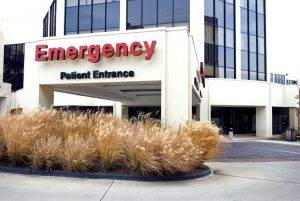 Carolyn Franks
Carolyn Franks
Missing in the media coverage of the unrelenting legions of drug overdose deaths in the United States is an equally important but less heralded story. What subsequently happens to people who experience a drug overdose but are successfully rescued through emergency medical intervention? What is their fate after they leave the hospital or other emergency care setting? New grassroots recovery community organizations (RCOs) are collaborating with first responders and hospitals to influence such outcomes.
The Connecticut Community for Addiction Recovery (CCAR) is one of several hundred recovery advocacy and recovery support organizations (RCOs) rising on the American landscape in the last two decades. One of the first RCOs, CCAR pioneered what have since become standard RCO service fare: recovery-focused professional and public education, legislative advocacy, recovery community centers, recovery celebration walks and conferences, recovery support groups, training for recovery home operators, face-to-face and telephone-based recovery support services, family-focused recovery education and support services, and collaboration with research scientists on the evaluation of the effects of peer support on long-term recovery outcomes. As an example of its reach, CCAR's Recovery Coach Academy curriculum has been used in the training of more than 20,000 recovery coaches in more than 33 states and in such countries as Sweden, Vietnam, Canada, and Spain.
CCAR began piloting an Emergency Department Recovery Coach (EDRC) Program in March of 2017. Through this program, CCAR-trained recovery coaches are on-call for hospital emergency rooms to offer assistance to patients and their families during an emergency room visit resulting from an adverse drug reaction or other alcohol- or other drug-related medical crisis. An evaluation of EDRC services provided between March and November 2017 within four collaborating hospitals revealed the following. CCAR-trained recovery coaches provided recovery support services to 534 patients/families during the 8-month evaluation period with a relatively even distribution of services provided across the four hospitals. Of those served by the EDRC, the majority were in the ER due to an alcohol- or opioid-related condition; 70% were male; and 5% were seen more than once during the evaluation period. Most importantly, of the 534 people interviewed, 528 were assertively linked to a detoxification program, inpatient or outpatient treatment, or community-based recovery support resources.
A more formal and sustained evaluation of the EDRC program is underway in collaboration with Yale University, and the program is now being expanded to an additional four hospitals. Funding support for the EDRC comes from the Connecticut Department of Mental Health and Addiction Services through support of the federal block grant and a Targeted Response to the Opioid Crisis Grant from the Substance Abuse and Mental Health Services Administration.
CCAR's EDRC program has many distinct features worthy of replication and local refinement. Among the more striking of such features are the following.
* The EDRC program is governed by a formal agreement between CCAR and each participating hospital that delineates the roles and responsibilities of each party.
* The EDRC program is currently staffed by one Recovery Coach Manager and 9 full-time Recovery Coaches (RCs).
* Emergency Department Recovery Coaches (EDRCs) are recruited and screened (2 interviews with background and reference checks) based on desired experience, skills, and a good work history, but also for what our EDRC manager, Jennifer Chadukiewicz, callsa servant's heart.
* All EDRCs go through more than 60 hours of training and spend the first weeks shadowing tenured EDRCs. The training includes the CCAR Recovery Coach Academy (30 hours) as well as topical trainings, e.g., Narcan (naloxone administration), medication-assisted recovery, ethical decision-making, crisis intervention, and conflict resolution. Hospital specific training includes such areas as fire/general safety, OSHA, blood borne pathogens, infection control, hazardous materials, and HIPPA regulations.
* EDRC Recovery Coaches are employed by CCAR rather than the hospitals and enter the hospitals as service vendors and "guests" who defer to leadership of ER staff.
* The RCs are paid a livable wage ($20-$25/hr. to start plus benefits, health insurance, etc.) that allows them to work full time and support themselves and their families while affording time away for rest and self-care.
* EDRC coverage is provided from 8 am to 12 midnight, seven days a week, 365 days a year.
* Patients have the option of enrollment in enhanced Telephone Recovery Support (TRS) program (i.e., patients receive daily support calls for the next 10 days and then weekly if desired).
* EDRC's provide assertive linkage and transportation (when needed) to treatment and recovery support resources.
* The EDRCs spend considerable time with community providers and other stakeholders building collaborative relationships that facilitate this patient referral and service linkage process.
* CCAR provides each hospital emergency department withprescription pad? style resource handouts that can be attached to discharge paperwork and given to patient friend/family member.
There are critical windows of vulnerability and opportunity within addiction and recovery careers that serve to plunge one deeper into addiction or mark the catalytic beginning of a recovery process. The reversal of a drug overdose or treatment of other drug-related medical crises can constitute a recovery tipping point.
The emergency room is not the only critical point of potential intervention to reduce the risk of drug-related deaths and to promote addiction recovery. For persons with a history of addiction, the days and weeks immediately following release from a correctional facility, release from an inpatient or residential detoxification/treatment program without medication support, or cessation of medication-assisted treatment, and even transfer from one medication-assisted treatment provider to another all constitute a zone of heightened risk for re-initiation of risky drug use and death. Altering such risks and tipping the scales toward recovery stabilization, recovery maintenance, and enhanced quality of personal/family life in long-term recovery should be the goals of every community. Recovery community organizations like CCAR are showing us how this can be done.